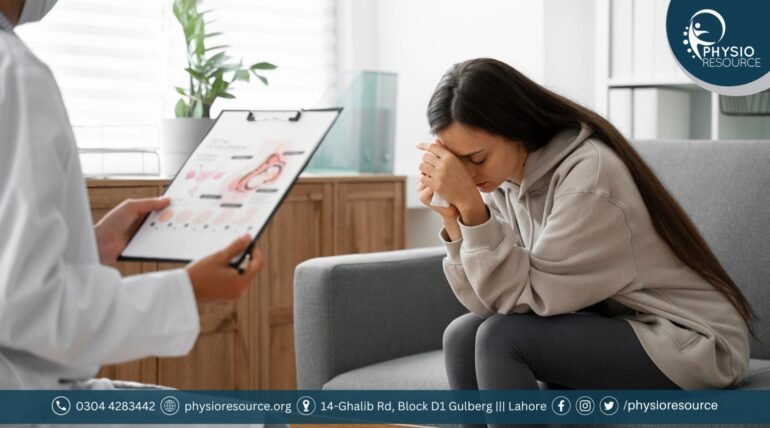
Understand the Science of Calm and How You Can Control It
Have you ever had the sensation that your thoughts are racing, your chest is constricted, and your heart is racing all at once? That is more than simply “overthinking”; it is worry in action. Your body and brain are responding to stress. The most powerful (and underrated) element, however, is that something as basic as breathing can quickly quiet the mental maelstrom. This blog will discuss how breathing impacts your nervous system, what happens in your brain when you’re anxious, and how to naturally and successfully maintain control.
What Happens in Your Brain During Anxiety?
Your brain switches into “fight or flight” mode when you experience anxiety, which is a survival mechanism that readies your body for danger. Your brain interprets a threat even when there isn’t one.
This is what occurs:
- The hypothalamus causes the release of stress hormones such cortisol and adrenaline;
- The amygdala, or fear centre, becomes hyperactive and transmits danger warnings;
- Your breathing becomes shallow, your muscles tense, your digestion slows, and your heart rate rises.
- It is difficult to think properly when experiencing anxiety because the prefrontal cortex, which is in charge of logic and decision-making, becomes less active.
Related post: What is the 4-7-8-4 Breathing Technique?
So, How Does Breathing Help With Anxiety?
Your breathing directly affects the response of your neurological system and brain.
This is how it operates:
- The parasympathetic nervous system, also referred to as the “rest and digest” mode, is activated by deep, slow breathing.
- This lowers blood pressure, lowers stress hormone levels, slows the heart rate,
- Itcalms the amygdala, and helps your brain re-establish a connection with the prefrontal cortex, which is responsible for logic and reasoning.
In simple terms:
Slow breathing = a calm brain.
Shallow, fast breathing = more anxiety.
Easy Breathing Techniques That Actually Work
To get started, you don’t need costly equipment or complex therapy. Try these easy, research-backed methods whenever you’re feeling nervous:
- Breathing in a box (4-4-4-4):
- Inhale for 4 seconds
- Hold for 4 seconds
- Exhale for 4 seconds
- Hold for 4 seconds
- Continue for one to two minutes.
- 4-7-8 Breathing:
- Inhale for 4 seconds
- Hold for 7 seconds
- Exhale slowly for 8 seconds
- Belly Breathing
- Breathe deeply into your belly, not your chest
- Slowly exhale after placing one hand on your chest and the other on your belly.
- This breathing technique increases oxygen flow
- Aids in the brain’s deactivation of fear signals.
Related post: What is the Best Exercise for Anxiety?
Anxiety and Breathing – What the Research Says
Studies using brain scans (such fMRI) demonstrate that breathing can directly alter the brain’s emotional centers. When people practice controlled breathing regularly, the amygdala shrinks in activity, and mental clarity improves. Nowadays, psychologists and neurologists around the world advise that breathing be a crucial component of anxiety control programs.
Book Your Appointment with the Best Psychologist in Lahore
Breathing deeply will calm the mind and is also scientifically proven as a way to balance brain activity during an anxiety episode. It gives your nervous system a much-needed pause and assists you in taking charge at stressful moments.
If anxiety is hindering your recovery, your breathing, or your everyday life, you do not have to confront this all alone. At Physio Resource, the rehabilitation team has a highly qualified in-house psychologist capable of facilitating your recovery from both a physical and emotional standpoint.
with the best psychologist in Lahore at PhysioResource.
Your recovery. Your calm. Our priority.
Physio Resource
Phone No: 0304-4283442
Address: 93-A1, Gurumangat Road, Gullberg, III Lahore


